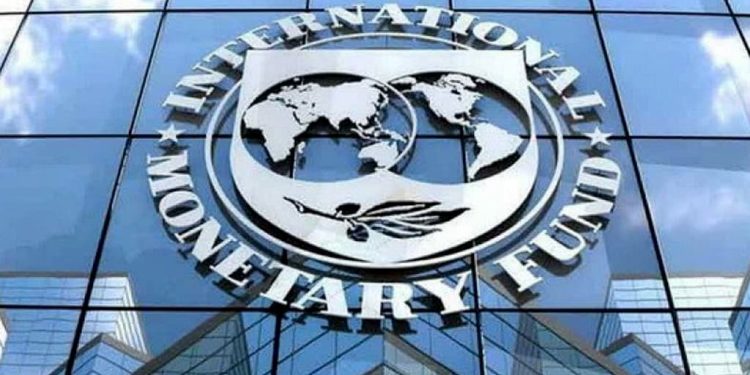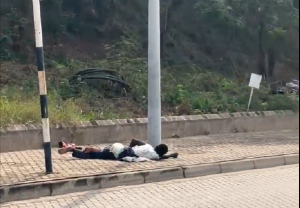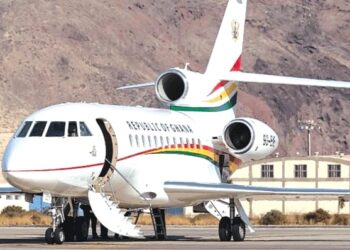Mr. Alex Emmanuel Nti an economist has hit hard on the government to make good use of the IMF bailout.
Ghana is on the verge of securing a US$ 3 billion IMF bailout to help with the country’s balance of payment problems, with the first tranche of US$600m expected to be authorized by Wednesday and disbursed within a week.
Speaking on Plan B FM’s ‘Ebaanosen with Ohene Kinnah, Mr. Nti stressed that, before Ghana can receive the full $3 billion from IMF, the first trench will determine its continuity.
“I have seen most countries that have received their first trenches but the remaining did not come because the money was not used for its intended purposes, so if government misuses the money i won’t be surprised the rest will not come,” he said
Ghana expects the International Monetary Fund to approve a first loan tranche of $600 million as soon as Wednesday, paving the way for disbursement within a week, Minister of State in the Finance Ministry Mohammed Amin Adam told Reuters on Sunday.
Ghana is seeking $3 billion from the Fund to shore up its battered economy. On Friday, IMF Managing Director Kristalina Georgieva said Ghana’s official creditors had provided the necessary financing assurances for the IMF Executive Board to look at signing off on the loan.
“We expect a deal on Wednesday. With the disbursement, there is going to be $600 million as a first tranche just immediately after the approval,” Adam said by phone, adding that Ghana hoped to receive the funds within a week of the board’s decision.
He said a second tranche of $600 million is expected to be approved after a successful first review of the program, sometime in November or December, with the rest disbursed in equal tranches of $360 million after semi-annual reviews.
Two sources familiar with the thinking of the Fund confirmed that the lender’s executive board was expected to meet on Wednesday in Ghana.
The IMF funds will boost Ghana’s coffers and help it work towards the target of foreign reserves amounting to the equivalent of three months of imports by 2026, he said.
Like some other smaller, riskier emerging markets including Sri Lanka and Zambia, Ghana faces a debt overhaul after its already strained finances buckled under the economic fallout from COVID-19 and Russia’s invasion of Ukraine.
Some $5.4 billion of debt to official creditors has been earmarked for restructuring, according to government data, as well as $14.6 billion of debt to private overseas creditors.
Adam said he expected negotiations with both sets of creditors to go well once the IMF signs off on the loan.
“Confidence is going to be restored and we expect that stakeholders will cooperate and will be encouraged to negotiate favorable terms with us,” he said, adding that the date for talks had not yet been set for either group.
Ghana has also turned to the World Bank as it fights to restore macroeconomic stability and end its worst economic crisis in a generation that has fuelled protests over the soaring cost of living.
Adam said the government was far along in talks with the World Bank to provide additional support of $900 million to be disbursed in three equal installments of $300 million over three years.
“We are far advanced, almost concluding negotiations,” he said.
The World Bank has also agreed to support a financial sector stability fund with $250 million to help Ghana address the insolvency and liquidity challenges following a domestic debt exchange program, which has affected some domestic banks.
Adam said the government was also in talks with the African Development Bank for over $100 million for the stability fund.










Discussion about this post